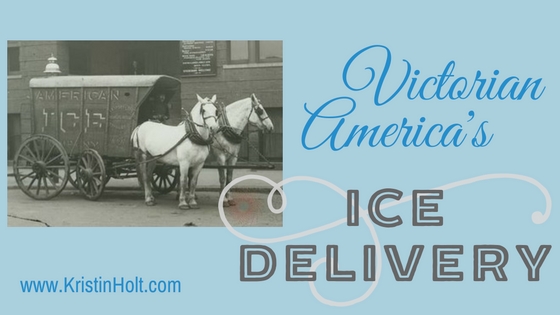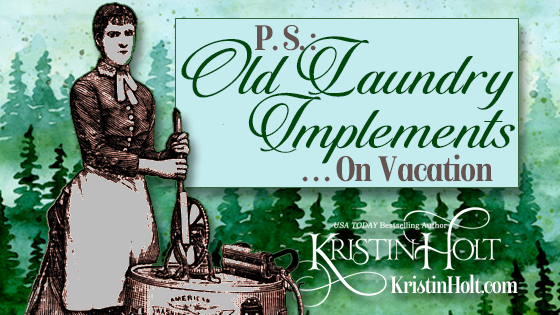
by Kristin Holt | Jan 25, 2017 | Articles
Nineteenth Century Ice Cutting, Part 2 (of 3): Staged as the adventures (and discoveries) of a boy in New England in the late 19th century, Lawrence’s Adventures, published in 1871 in Massachusetts, is instructive and entertaining. One of the chapters focuses wholly on the process of Ice-Cutting, and I share this now public domain content along with era-specific images showing the process. The information about how ice companies actually cut the ice from frozen lakes to provide Victorian America with the tons of ice demanded during the spring, summer, and autumn to sustain perishable food, chill beverages, transport perishable food via train, and aid the sick.

by Kristin Holt | Oct 2, 2016 | Articles
The Old West Barber Shop Blog Series continues. This article includes images of historic barber chairs, an antique towel steamer (and hot water dispenser), line art of the era illustrating the pedestal used in lieu of a barber’s chair, images from mail-order catalogues showing tools of the trade available for home purchase, and patents for barber chairs and devices. This series’ upcoming posts will detail Victorian-era men’s hairstyles, bath houses, bath tubs, shower baths, ingenious furniture-bath-tub combinations, and ladies’ hair salons.

by Kristin Holt | Aug 29, 2016 | Articles
The rotary lawnmower was first patented in England in 1830. The new invention replaced the centuries’ reliable scythe in keeping lawns trimmed and neat. Americans jumped on that bandwagon, and lawnmowers became popular by the late 1860’s. Lawnmowers were advertised in newspapers of the day as well as mail-order catalogs like Sears and Montgomery Ward’s.

by Kristin Holt | Aug 23, 2016 | Articles
Victorian Americans needed ice–for home use, through delivery businesses, on a commercial scale (to keep food from spoiling at the grocery and in railroad transportation). Ice houses were built all over the United States from the independent family’s ice house on their property to the enormous commercial Swift & Co. Ice House storing 60,000 tons annually. Ice harvesting occurred in January and February and kept in storage facilities until the following winter by applying ingenuity, science, and hard work. Men used saws, horse-drawn sleighs, and the strength of their own backs to harvest the cash crop each winter. This article contains vintage photographs, newspaper ads, and science info of the Victorian era.

by Kristin Holt | Jul 22, 2015 | Articles
While on vacation with my family in Long Beach, Washington, I found a clothes wringer on display, proudly proclaiming its use in 1876. The labor-saving machinery intrigued me!













